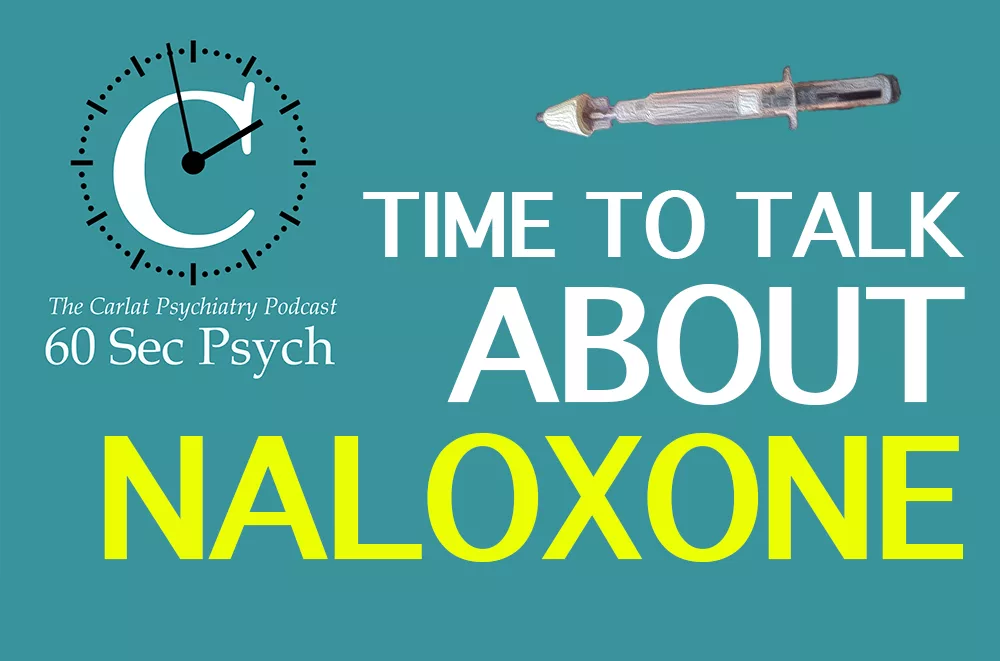New labeling from the FDA requires physicians to discuss naloxone with patients or caregivers they are prescribing opioids to. The new guideline also recommends that we prescribe naloxone to anyone who is at risk for opioid overdose, even if we aren’t prescribing them an opioid. That would include patients with a history of opioid overdose and those who use the drugs recreationally.
Published On: 10/17/20
Duration: 2 minutes, 6 seconds
Episode Notes: Naloxone 2 mg/2 ml pre-filled Luer lock–ready needleless syringes with a mucosal atomizer or Narcan nasal spray 4 mg
Transcript:
Naloxone is an opioid antagonist that can save lives when used for opioid overdose. Most of these fatalaties are accidental, and can happen when the patient takes a little more than prescribed to ease their pain or unwittingly combines the opioid with a respiratory suppressant like benzos or alcohol. Now, new labeling from the FDA requires physicians to discuss naloxone with patients or caregivers they are prescribing opioids to. The new guideline also recommends that we prescribe naloxone to anyone who is at risk for opioid overdose, even if we aren’t prescribing them an opioid. That would include patients with a history of opioid overdose and those who use the drugs recreationally.
Naloxone can be given IV or IM, but the intranasal route is what we prescribe to outpatients. Most states allow you to prescribe naloxone to family members even if you’ve never met or assessed the family – which makes sense since the antagonist is intended for use on your patient. The antagonist only lasts 30-60 minutes, so the family may need to give multiple doses to keep the patient alive while they await EMS. And – while it may save a life – the patient may not thank the family right away. Naloxone will usually precipitate opioid withdrawal symptoms like estlessness, agitation, nausea, vomiting, a fast heart rate, and sweating.
Naloxone was patented in 1961 and approved for opioid overdose in the United States in 1971. I’ve included exact prescribing directions for the nasal version in the episode notes.
Got feedback? Take the podcast survey.


_-The-Breakthrough-Antipsychotic-That-Could-Change-Everything.webp?t=1729528747)



